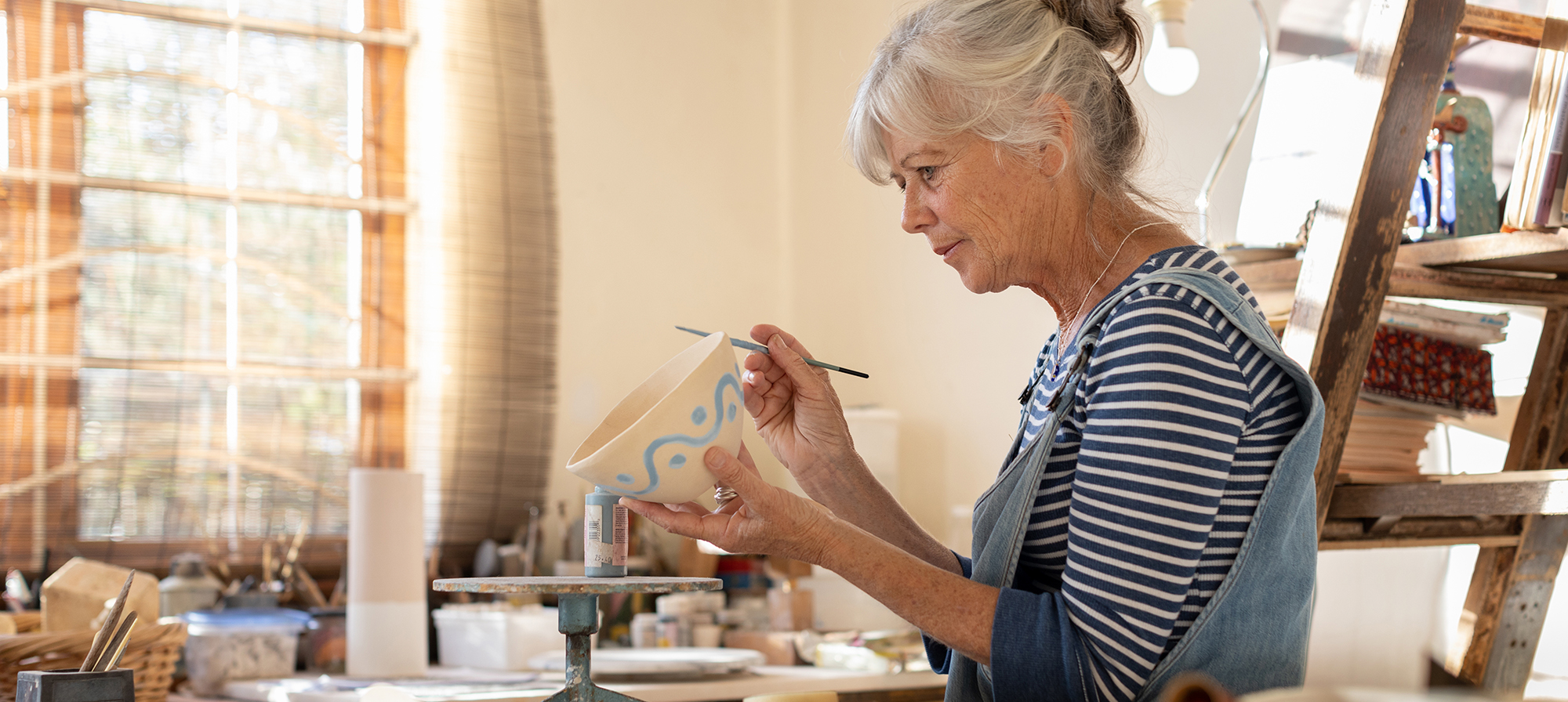Learn how to make new friends and nurture caring, meaningful bonds with them.
Strong friendships are such an important part of healthy aging. Your friends can enrich your life, give you comfort, and support you in challenging times. But as the years pass, you may find that your circle of friends is not as large as it once was. Or perhaps you don’t spend as much time with friends or family. Or you may have many casual acquaintances, but long for closer, more caring bonds with them.
It’s never too late to meet new people and form strong friendships with them or with friends you already have. Here are some steps that can help you do that.
 Making new friends
Making new friends
It’s never too late to bring wonderful new people into your life. But starting new friendships may feel harder than it did in the past. If this is the case for you, take heart. There are easy—and enjoyable—ways to make new friends. To meet and make new friends, you might want to:
- Take a class at the local college, senior center, or gym. Or consider signing up for a tai chi or yoga class.
- Join a club. It could be an in-person or online book club, travel club, or hiking club. You might also try Toastmasters, a photography club, or a birding club. Think about what you like or what you would like to learn.
- Volunteer for a cause or organization you believe in.
- Join a spiritual community. Go to church, temple, or a meditation center. Online services and chat groups may be an option too.
- Get out in the neighborhood. Go for a walk, visit an outdoor café, or attend a community event. You never know who you might meet.
You might be surprised by how receptive people are to a friendly gesture. But if someone doesn’t respond as you expect them to, try not to take it personally. There are many reasons a person might not be receptive. Just cast your net a little wider. Your new friends are out there.
Getting to know a new friend
If you’re shy, socializing and meeting new people can be tough. But try to push past your comfort zone. It gets easier with practice. It can help to try these tips:
- Break the ice with a simple question or sincere compliment.
- Smile often and use people’s names.
- Show genuine interest and appreciation.
- Really listen to what people are saying.
- Follow up with meaningful, open-ended questions.

Building a deeper bond with new and existing friends
Building caring, close friendships requires trust, open communication, and mutual understanding. You’ll usually know when you click with another person. To decide whether there’s a foundation for a close friendship, notice whether that person:
- Makes you feel at ease, so that you can be yourself
- Listens with full attention
- Is at ease opening up about themselves
- Is truly interested in you, in your thoughts and feelings, and what’s happening in your life
- Gets you, likes you, respects you, and supports you
Be mindful of red flags, too. Listen to your gut and notice whether a new friend:
- Constantly interrupts you or changes the topic of conversation to be about him or herself
- Makes you feel judged or that you need to be careful about what you say
- Leaves you feeling uneasy after you spend time together
Give your new friendships time to grow
It can take time to build a meaningful, close friendship. You don’t have to rush this process. And remember that it’s not about making as many friends as you can. It’s about finding genuine, caring friendships that last.
Not a Silver&Fit® member? Learn more about everything the program has to offer, including more helpful healthy living tips like this, here on our website.
This information is not intended to take the place of regular medical care or advice. Please check with your doctor before using this information or beginning any self-care program. Images used for this article do not depict any members of the Silver&Fit program.
References
Robinson, L., Artley, A., Smith, M. A., & Seagal, J. (2024, February 5). Making good friends. https://www.helpguide.org/articles/relationships-communication/making-good-friends.htm
Rook, K., & Charles, S. (2017). Close social ties and health in later life: Strengths and vulnerabilities. The American Psychologist, 72(6):567-577. https://doi.org/10.1037/amp0000104
Schwartz, E., & Litwin, H. (2017). Are newly added and lost confidants in later life related to subsequent mental health? International Psychogeriatrics, 29(12):2047-2057. https://doi.org/10.1017/S1041610217001338
Yang, C., Boen, C., Gerken, K., Ting, L., Schorpp, K., & Harris, K. M. (2016). Social relationships and physiological determinants of longevity across the human life span. Proceedings of the National Academy of Sciences, 113(3), 578–583. https://doi.org/10.1073/pnas.1511085112
This article was written by Jason Nielsen, edited by Gail Olson, and clinically reviewed by Elizabeth Thompson, MPH, RDN, on October 2, 2024.





